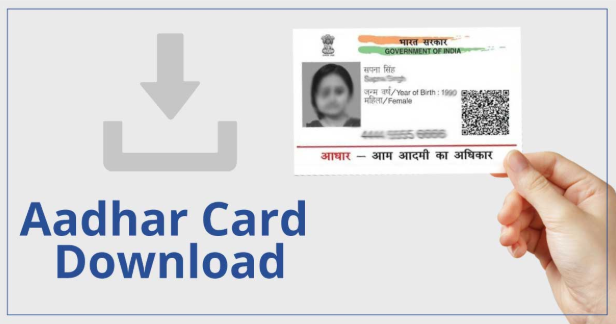In the rapidly evolving business landscape of the UAE, the role of internal audits is growing in significance. With organizations increasingly facing regulatory scrutiny, market pressure, and rising operational complexities, maintaining effective internal controls and compliance mechanisms is more crucial than ever. Internal audits not only identify potential risks but also offer actionable recommendations to mitigate those risks. However, ensuring that these recommendations are acted upon can be just as important as the audit itself. The importance of audit follow-up and how businesses can ensure that audit recommendations are effectively implemented.
The Importance of Audit Follow-up
Internal audits often result in valuable recommendations aimed at improving processes, reducing risks, and enhancing the overall performance of an organization. However, the effectiveness of these recommendations depends largely on whether they are implemented. An audit is only as good as its follow-through. Without proper follow-up, even the most comprehensive audits may not deliver the intended benefits.
For organizations in the UAE, a failure to act on audit recommendations can lead to missed opportunities for process improvements, increased inefficiencies, and potential compliance issues. With regulations in place that require businesses to adhere to specific standards, such as the UAE’s Corporate Tax Law, VAT compliance, and anti-money laundering regulations, ensuring that internal audit recommendations are addressed is a critical part of maintaining a business’s compliance and operational integrity.
One way to ensure that audit recommendations are effectively implemented is through internal audit advisory services. These services offer ongoing support, guidance, and monitoring throughout the implementation process, ensuring that any corrective actions taken are aligned with industry best practices and regulatory requirements. Internal audit advisory services help organizations track the progress of audit recommendations, ensuring that timelines are met and that the implemented solutions are effective.
Steps for Effective Audit Follow-up
Effective audit follow-up requires a structured approach. It involves monitoring the progress of the corrective actions, maintaining clear communication between key stakeholders, and tracking the effectiveness of those actions over time. Below are some essential steps businesses in the UAE can take to ensure that audit recommendations are implemented successfully.
1. Establish Clear Ownership and Accountability
One of the first steps in ensuring audit recommendations are followed through is assigning responsibility to specific individuals or teams within the organization. This could be a department head, a project manager, or a compliance officer. Clear ownership ensures that someone is accountable for ensuring the audit recommendations are implemented on time.
When the person or team responsible for executing the recommendations is identified, it’s easier to track progress and hold them accountable for any delays. This is particularly important for organizations in the UAE, where compliance with local laws and regulations is a top priority. An audit follow-up without clear ownership often leads to confusion and delays in implementation.
2. Develop an Action Plan with Specific Timelines
Once ownership is assigned, it’s essential to create a detailed action plan. This plan should outline specific steps, timelines, and milestones for implementing the audit recommendations. Setting realistic deadlines ensures that everyone involved understands the urgency and priority of each recommendation.
For example, if the audit recommends improving financial reporting procedures to ensure compliance with the UAE VAT regulations, the action plan should specify who will be responsible for revising the procedures, the timeline for implementation, and how progress will be monitored. This level of detail helps avoid ambiguity and ensures that everyone is on the same page.
3. Regular Monitoring and Reporting
Implementing audit recommendations is a dynamic process that requires regular monitoring. By tracking the progress of corrective actions and regularly updating senior management, organizations can ensure that the necessary steps are being taken to address the recommendations.
In the UAE, where businesses are often subject to both local and international regulations, staying on top of the implementation process can prevent regulatory violations. Regular updates also allow organizations to quickly identify any roadblocks or challenges in the implementation process, enabling them to take corrective action as needed.
4. Leverage Internal Audit Advisory Services
Many organizations opt to engage internal audit advisory services to assist with the implementation and follow-up process. These services are particularly beneficial for businesses in the UAE, where a deep understanding of local regulatory frameworks is critical.
Internal audit advisory services help organizations develop effective follow-up strategies, track progress, and ensure that the implemented recommendations align with business objectives. These services also assist in the assessment of risks that may arise during implementation and help the business adjust its approach to minimize any potential negative impact.
Moreover, internal audit advisory services offer expert insights into best practices, ensuring that the company’s processes are up-to-date with the latest industry standards and regulatory requirements. This ensures that audit recommendations are not only implemented but also optimized for long-term success.
5. Evaluate Effectiveness After Implementation
Once the audit recommendations have been implemented, it’s essential to evaluate their effectiveness. This means assessing whether the changes made have resolved the issues identified in the audit and whether they are delivering the expected results.
For example, if the audit recommended improving the accuracy of financial statements, the organization should assess whether the new procedures are producing more accurate and reliable financial data. Evaluating the effectiveness of audit recommendations helps identify any shortcomings or areas for further improvement.
6. Document and Communicate Results
Once the audit recommendations have been implemented and evaluated, documenting the results is crucial. This documentation provides a clear record of the actions taken and their outcomes, which is particularly valuable for future audits and compliance assessments.
Additionally, communicating the results to key stakeholders, including senior management and regulatory bodies, ensures transparency and fosters trust. This communication reinforces the organization’s commitment to continuous improvement and compliance, especially in a highly regulated market like the UAE.
FAQs
1. Why is it important to follow up on audit recommendations?
Following up on audit recommendations is essential to ensure that the issues identified during the audit are addressed effectively. Without proper follow-up, audit findings may go unaddressed, potentially leading to increased risks and inefficiencies. Audit follow-up also ensures that corrective actions align with business goals and regulatory requirements.
2. What role do internal audit advisory services play in audit follow-up?
Internal audit advisory services provide expert guidance and support throughout the audit follow-up process. They help organizations develop action plans, track progress, and ensure that recommendations are implemented effectively. These services also assist in navigating complex regulatory frameworks, which is particularly important for businesses operating in the UAE.
3. How can I ensure that audit recommendations are implemented on time?
To ensure timely implementation of audit recommendations, assign clear ownership, develop a detailed action plan with specific timelines, and monitor progress regularly. Establishing accountability and communicating regularly with all stakeholders will help ensure that recommendations are implemented on time.
4. What should be included in an audit follow-up report?
An audit follow-up report should include a summary of the audit recommendations, the actions taken to address those recommendations, timelines, and an evaluation of their effectiveness. It should also document any challenges encountered during the implementation process and suggest additional improvements if necessary.
5. Can audit follow-up be outsourced?
Yes, audit follow-up can be outsourced to firms offering internal audit advisory services. These services help ensure that the audit recommendations are properly implemented and aligned with industry best practices and regulatory requirements, particularly for businesses in the UAE.
6. How often should audit follow-up meetings be held?
Audit follow-up meetings should be held regularly to monitor progress and address any issues that may arise. The frequency of these meetings depends on the scope of the audit recommendations and the complexity of the corrective actions. Generally, it is advisable to hold follow-up meetings monthly or quarterly to ensure consistent progress.
By implementing a structured and efficient audit follow-up process, businesses in the UAE can ensure that audit recommendations are fully addressed, leading to better risk management, improved compliance, and enhanced overall performance. With the support of internal audit advisory services, organizations can stay ahead of potential challenges and maintain a strong internal control framework that drives long-term success.
















Leave a Reply